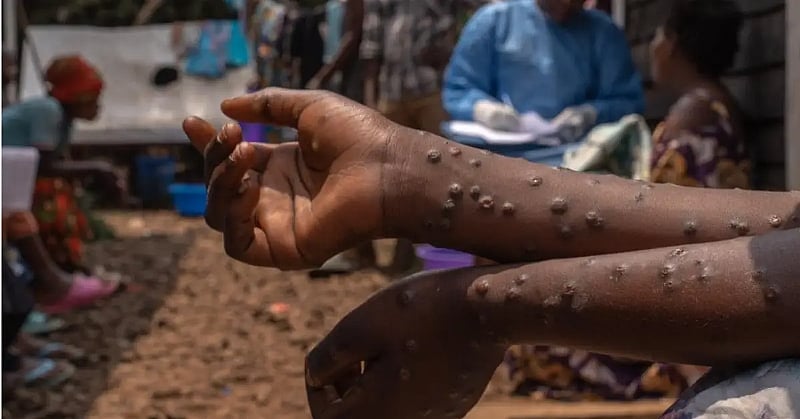The Nkwanta North District, nestled within the Oti Region of Ghana, has recently grappled with a confirmed case of Mpox, a viral zoonotic disease capable of transmission between animals and humans, as well as human-to-human spread. The case has triggered immediate action by local health authorities to contain the potential outbreak and educate the community about the virus. Mpox, formerly known as monkeypox, typically presents with symptoms such as fever, distinctive rashes, and swollen lymph nodes. While often resolving without severe complications, the disease can, in certain instances, lead to more serious health issues, underscoring the importance of prompt medical attention and public health intervention. The confirmed case in Nkwanta North has brought the reality of the global Mpox concern to the local level, prompting a concerted response from district officials.
The individual diagnosed with Mpox in Nkwanta North is reported to have traveled from the Konkomba market in Accra. This travel history highlights the potential for disease spread across geographical regions and the importance of surveillance and rapid response mechanisms. Upon exhibiting symptoms consistent with Mpox, the individual sought medical attention, triggering the subsequent investigation and response by the District Health Directorate. The director, Mr. Eric Kojo Agboka, emphasized the collaborative efforts between the health directorate and local authorities in tackling the situation. This coordinated approach is crucial for effective disease containment and public health management.
The District Health Directorate immediately initiated contact tracing efforts to identify and monitor individuals who may have come into close contact with the confirmed Mpox case. This proactive measure aims to prevent further spread of the virus within the community. Concurrent with contact tracing, public health education campaigns have been launched to disseminate crucial information about Mpox. These campaigns focus on educating the community about the characteristic symptoms of the disease, the potential risks of transmission, and the importance of maintaining good hygiene practices to minimize the risk of infection. The combination of contact tracing and public health education represents a comprehensive strategy to control the outbreak and empower the community with knowledge.
The Nkwanta North District Health Directorate, under the leadership of Mr. Agboka, has pledged its commitment to closely monitor the evolving Mpox situation and provide regular updates to the public. Transparent and consistent communication is vital in managing public health concerns, fostering trust, and ensuring that the community remains informed about the ongoing efforts to address the outbreak. This commitment to transparency aims to allay public fears and encourage proactive health-seeking behaviors. Regular updates will provide the public with the most current information and guidance regarding Mpox, allowing them to make informed decisions about their health and wellbeing.
The District Chief Executive of Nkwanta North, Mr. Isaac Dordoe, has echoed the call for vigilance and proactive health measures. He urged residents to remain alert for any unusual symptoms that might be indicative of Mpox and to report such symptoms promptly to the appropriate health authorities. Early detection and reporting are crucial for effective disease management and can significantly contribute to containing the spread of the virus. Mr. Dordoe emphasized the importance of community participation in the collective effort to safeguard public health. He reassured residents that the district administration is working in close collaboration with the health department to ensure that all necessary measures are in place to prevent further transmission of the Mpox virus.
The collaborative efforts between the district health authorities and the local administration, combined with the proactive engagement of the community, are crucial in effectively managing the Mpox situation in Nkwanta North. The emphasis on contact tracing, public health education, and transparent communication aims to contain the spread of the virus, empower the community with essential knowledge, and foster a collective responsibility for public health. The district’s response underscores the importance of preparedness, rapid response, and community engagement in addressing public health challenges. The ongoing monitoring and regular updates from the health authorities will ensure that residents remain informed and equipped to protect themselves and their community.














